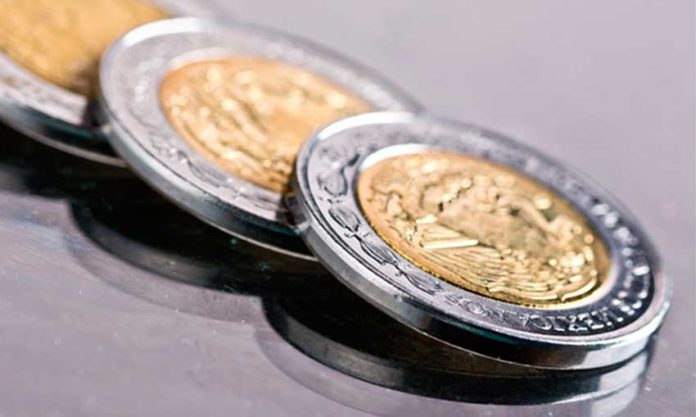The Mexican peso completed its best week in more than six years yesterday, buoyed by a weaker US dollar and a honeymoon period following the election of Andrés Manuel López Obrador, who has sought to calm fears surrounding his economic plans.
The peso’s value against the greenback increased by 3.92% this week, its greatest single-week gain since December 2011.
The Bank of México said the interbank dollar rate closed at 19.0945 pesos, its lowest mark since May 3.
The 3.92% surge also made the Mexican peso the best performing emerging nations currency this week, according to Bloomberg, ahead of the Argentine and Colombian pesos which gained 3.02% and 1.96% respectively.
According to the currency exchange website xe.com, one US dollar was trading at 19.1 pesos at 3:00pm CDT today.
The dollar declined due to escalating trade tensions between the United States and China, with both countries imposing new tariffs on each other, while mixed U.S. employment data placed additional pressure on the currency.
Meanwhile, Bloomberg said “the peso’s rally since Sunday’s election shows that markets are rewarding Andrés Manuel López Obrador, known as AMLO, and his team for their efforts to calm investor anxiety after the populist swept to power with more than half the vote.”
As part of the incoming administration’s “charm offensive” to ease economic concerns, AMLO’s pick to be his finance secretary has been particularly outspoken.
Carlos Urzúa, who served as Mexico City’s finance secretary when López Obrador was mayor between 2000 and 2005, has reassured investors that the 2019 budget will keep the nation’s finances under control and stressed that the independence of the central bank will be respected.
RBC Capital Markets analyst Tania Escobedo Jacob wrote in a note that Urzúa’s “general outline” of the government’s economic plans “has been very well accepted by market participants,” adding that it has “decreased significantly the risk or perception of a radical shift in the management of the Mexican economy.”
The president-elect’s chief of staff also sought to allay fears this week that López Obrador might move to scrap the 2013 energy reform that enabled foreign and private companies to invest in Mexico’s oil industry.
Alfonso Romo said that López Obrador won’t seek to wind back the reform but added that his administration would review contracts for graft and if irregularities are detected, it will speak with the companies before any changes are made.
“I don’t see changes,” Romo said. “If anything happens, it would be done without hurting private investment.”
López Obrador also signaled earlier this week that he would support the current administration’s ongoing efforts to reach an updated North American Free Trade Agreement (NAFTA).
While the signs for the peso are good this week, some analysts have expressed concern that the positive trend may not last.
Erik Nelson, an analyst at Wells Fargo in New York, said “the conciliatory tone from AMLO has really helped” the peso strengthen this week but added:
“I’m a little skeptical of the longer term. You have an avowed populist that’s been elected. It’s hard to see long-term outperformance for the peso.”
Source: El Financiero (sp), Bloomberg (en)
